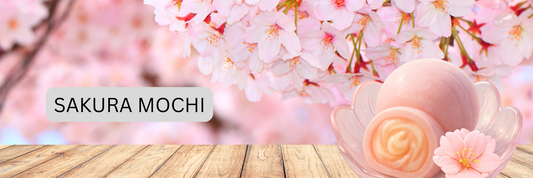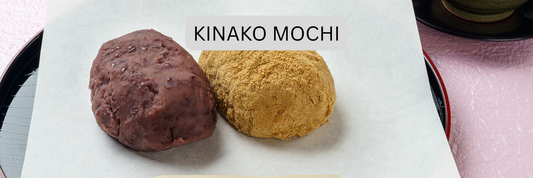Herb crackers, rosemary crackers, thyme crackers, oregano crackers, gluten-free herb crackers, homemade crackers, vegan crackers, whole wheat herb crackers, healthy snack ideas, and cheese board pairings—these are some of the top searches from people who love flavorful, crunchy bites. Herb crackers have become a favorite snack thanks to their aromatic herbs, crispy texture, and versatility. Whether you want to bake homemade herb crackers with rosemary and thyme, explore healthy gluten-free variations, or find the best store-bought herb crackers for your next party, this article covers everything. By the end, you’ll know how to make herb crackers at home, what herbs pair best, and how to serve them with dips, cheese, or wine.
What Are Herb Crackers?
Herb crackers are savory, crunchy snacks flavored with aromatic herbs such as rosemary, thyme, oregano, or basil. These herbs not only enhance flavor but also bring a natural aroma that elevates the eating experience. Unlike plain crackers, herb crackers add complexity, making them a perfect base for cheese, dips, or spreads.
There are different types of herb crackers available: homemade versions baked with fresh herbs, artisanal store-bought crackers with gourmet blends, and healthier variations such as gluten-free or whole wheat herb crackers. Their flavor profile is earthy, slightly salty, and highly versatile—ideal for everything from light snacking to pairing with wine.
Health-conscious consumers often prefer herb crackers because they use simple ingredients like flour, olive oil, herbs, and a pinch of salt. This makes them a cleaner snack compared to overly processed alternatives. Whether baked at home or bought from premium brands, herb crackers remain one of the most beloved choices for people who value flavor and texture.

Health Benefits of Herb Crackers
Herb crackers are more than just a tasty treat—they can also be a healthier snack alternative when prepared thoughtfully. Whole wheat and gluten-free herb crackers provide fiber and complex carbohydrates, helping to keep you fuller for longer. Olive oil, often used in recipes, contains heart-healthy fats, while herbs such as rosemary and oregano contain antioxidants and anti-inflammatory properties.
For example, rosemary is known to support digestion and improve memory, while oregano is rich in vitamin K and antioxidants. Choosing crackers with these herbs adds both flavor and potential health benefits. Homemade versions are especially beneficial because you can control the ingredients—reducing sodium, avoiding preservatives, and experimenting with whole grains or seed flours.
Compared to processed chips, herb crackers offer a crunchy, savory snack with fewer empty calories. They’re also versatile, fitting into diets such as vegan, plant-based, and Mediterranean. If portioned wisely, herb crackers can be part of a balanced diet, making them an ideal choice for health-conscious snackers.
Homemade Herb Crackers Recipe (Step-by-Step)
Ingredients
To make herb crackers at home, you’ll need:
- 1 cup all-purpose flour (or whole wheat/gluten-free flour)
- 1 tablespoon olive oil
- ½ teaspoon salt
- 2 tablespoons finely chopped herbs (rosemary, thyme, oregano, or basil)
- 4–5 tablespoons water
Instructions
- Preheat oven to 375°F (190°C).
- Mix flour, salt, and herbs in a bowl.
- Add olive oil and water, stirring until a dough forms.
- Roll dough thinly on a floured surface.
- Cut into small squares or shapes.
- Place on a baking sheet and bake for 12–15 minutes until golden and crisp.
Variations
- Gluten-free herb crackers: Use almond or rice flour.
- Vegan herb crackers: Replace butter with olive oil or coconut oil.
- Herb and cheese crackers: Add grated Parmesan or cheddar for extra flavor.
- Whole grain option: Use whole wheat flour for more fiber.
These variations allow customization depending on dietary needs and flavor preferences.
Best Herbs for Crackers
Choosing the right herbs is key to creating flavorful crackers. Rosemary is a classic choice, offering a pine-like aroma and bold flavor that pairs beautifully with cheeses such as brie or cheddar. Thyme brings a subtle earthiness, while oregano adds a Mediterranean touch. Basil, though softer in flavor, provides freshness that works well with tomato-based dips.
For creative blends, consider mixing rosemary and garlic for a robust snack or combining basil and oregano for an Italian-inspired cracker. Home cooks often experiment with dried herbs for convenience, but fresh herbs deliver a stronger aroma and more vibrant flavor.
When baking, balance is important—too much rosemary can overpower the cracker, while subtle herbs like thyme need to be combined with others for complexity. By understanding each herb’s unique flavor profile, you can customize crackers to suit specific pairings, whether for a charcuterie board, wine night, or everyday snacking.
Pairing Ideas: What to Serve with Herb Crackers
Herb crackers are a versatile base for countless pairings. On cheese boards, they complement soft cheeses like goat cheese and brie, as well as sharper varieties such as aged cheddar. Their earthy notes enhance creamy and tangy flavors, making them ideal for entertaining.
With dips, herb crackers shine alongside hummus, spinach artichoke dip, or guacamole. They provide the crunch needed to balance creamy textures. For wine lovers, rosemary crackers pair beautifully with cabernet sauvignon, while oregano and thyme crackers go well with white wines like sauvignon blanc.
Beyond formal pairings, herb crackers are excellent as a lunchbox snack, topped with avocado or nut butter. They also make a quick appetizer when served with smoked salmon and cream cheese. Their versatility allows them to transition from everyday snacks to gourmet entertaining with ease.

Homemade vs Store-Bought Herb Crackers
When it comes to herb crackers, both homemade and store-bought options have their merits. Homemade crackers offer freshness, control over ingredients, and flexibility in flavor. You can adjust the herbs, reduce sodium, and use high-quality oils or whole grains. The main downside is time—making them requires effort and baking skills.
Store-bought herb crackers, on the other hand, provide convenience and consistency. Premium brands often use gourmet blends of herbs, making them perfect for entertaining or gifting. However, some mass-produced versions may contain preservatives or added sugars.
Price is another factor. Homemade crackers are generally more cost-effective, especially when baking in larger batches. Store-bought versions are ideal for those who value convenience and don’t mind paying more for ready-to-eat quality. Ultimately, the choice depends on your lifestyle—DIY bakers will enjoy the customization of homemade crackers, while busy hosts may prefer artisanal packaged varieties.
Storage Tips for Herb Crackers
To maintain their signature crunch, proper storage is essential. Homemade herb crackers should be cooled completely before storing to prevent trapped moisture. Place them in an airtight container or glass jar, keeping them at room temperature. They usually last up to one week without losing freshness.
For longer storage, consider freezing. Place cooled crackers in a freezer-safe bag, removing as much air as possible. They can be stored for up to three months and reheated in the oven for a few minutes to restore crispiness.
Store-bought crackers typically last longer due to preservatives, but once opened, they should also be sealed tightly to maintain crunch. Using resealable pouches or transferring them to airtight containers works best. Proper storage ensures you always have crispy, flavorful herb crackers ready for snacking or entertaining.

FAQs
What herbs are good in crackers?
Rosemary, thyme, oregano, basil, and parsley are popular herbs. Combinations such as rosemary-garlic or oregano-basil provide unique flavor blends.
Are plant-based herb crackers healthy?
Yes. Plant-based herb crackers made with olive oil and whole grains provide fiber and healthy fats. They are often lower in preservatives compared to traditional packaged snacks.
What are the three types of crackers?
Common categories include plain crackers, flavored crackers (such as herb crackers), and enriched crackers (with cheese, seeds, or spices).
What goes well with rosemary crackers?
Rosemary crackers pair well with brie, goat cheese, hummus, or smoked salmon. They’re also great with red wines such as cabernet sauvignon.
Conclusion
Herb crackers are more than just a snack—they’re a versatile, flavorful, and often healthier alternative to processed chips. Whether you prefer baking them at home with fresh rosemary and thyme or buying artisanal store-bought options, herb crackers can elevate any snack time, cheese board, or wine night.
Try experimenting with different herbs, pairings, and variations to suit your taste. If you’re ready to explore more recipes, subscribe for weekly culinary guides—or check out our curated list of the best store-bought herb crackers for your next gathering.
Read More:







